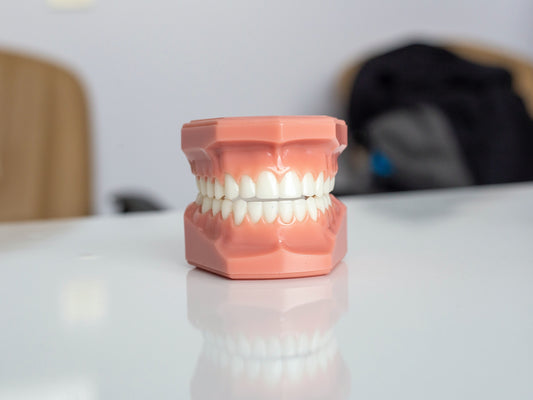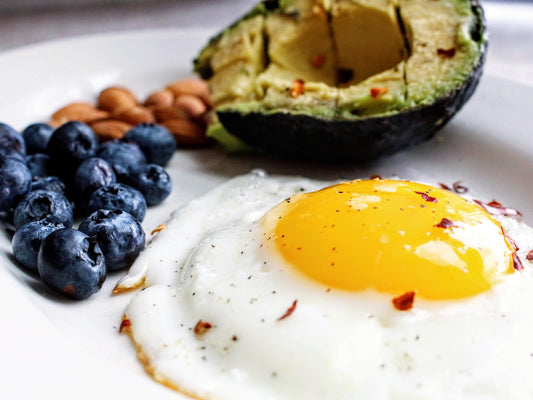Urinary tract infection (UTI) is so common that 1 in 5 women suffers from it at least once in her lifetime. Not only women, but men, children, and aged people can also get UTI [1]. Not to mention, any kind of infection down there is highly uncomfortable and painful and needs to be treated quickly.
Here’s good news for people who have been taking probiotics — UTI can be treated and prevented by the intake of specific probiotics. They are the “good bacteria” that regulate not only your digestive system but also other body parts, such as your urinary tract!
This article discusses UTI in detail, its causes, symptoms, and how probiotics can help treat it and alleviate the chances of contracting painful urinary bacterial infections.
What is UTI?

Before discussing probiotics, let’s talk a little about UTIs.
An infection in any part of the human’s urinary system is called a UTI. These parts include the urethra, uterus, bladder, and kidneys. Bacteria known as E. coli are usually responsible, entering the urinary system and causing inflammation and swelling wherever they land and settle [1, 2]. If not treated in time, the infection spreads to other parts of the urinary system.
Causes and Symptoms
If you’re getting recurrent UTI (more than once within 6 months) then you should inspect your lifestyle and investigate the cause [3]. Some of the major causes of getting a UTI are:
- Poor hygienic practices
- Disturbance in the vaginal flora — the bacteria that live inside the vagina [4]
- Sexual activity
- Pregnancy
- A weak immune system
- Kidney stones
- Improper excretion due to conditions such as enlarged prostate gland [5].
- Dehydration
Many people experience UTI due to underlying health problems such as diabetes [6] and other structural issues with their urinary system.
UTI systems are uncomfortable and can affect your lifestyle drastically. You feel mild to severe pain in the pelvic and abdominal region, a burning sensation while urinating, frequent urge to pee, and unusual urine color and blood in the urine. Side by side, you may feel fever, fatigue, and nausea.
A little about urinary microbiome
Urinary microbiome (a community of different bacteria living together) is sensitive like your gut microbiome. There are higher chances of disruption in this area because the toxins removed by kidneys from blood are stored in the bladder. The most common microbe found in your urinary microbiome is “Lactobacillus.” It is reasoned that a decrease in the number of these bacteria increases the risk of UTI [7].
It should be noted that the urinary microbiome is different in every human being and it’s dependent on factors such as gender, age, antibiotics, underlying diseases, and body dehydration level. This means there might be some other dominant bacteria in your microbiome that may change in the number with time [8]. Women generally have a greater variety of microbes than men. There is no definite answer to how these microbes interact with each other in a urinary microbiome, but scientists are working hard to reach a conclusion.
Can UTI be prevented with probiotics?
Now to the answer you came here for! Can probiotics in your diet help with a UTI? Short answer, yes. Many studies and research have been conducted that suggest that probiotics can decrease the risk of getting UTI. Although the research is still in its early stages, the results are promising.

Probiotics for healthy vaginal health are gaining popularity and are being used as a non-antimicrobial preventive treatment for UTI. The problem with antibiotics is that our body becomes resistant to them, and the medicine loses its efficiency with time [9]. But this doesn’t happen with the use of probiotics.
The main probiotic strain used for UTI is “Lactobacillus.” With the regular intake of these probiotics, the number of this microbe in the urinary microbiome is replenished, making your system stronger and effective against bad bacteria that cause infections [8]. Probiotics also boost the immune system, protecting your body against foreign microbes such as yeast.
How do probiotics work in the urinary microbiome?
Research has shown that Lactobacillus probiotic strain works in three different ways in your urinary system. One way is by producing lactic acid in the microbiome that helps fight and kill infection-causing bacteria and viral pathogens. Another way is the formation of protective epithelial colonies in the urinary tract lining that prevents any bacteria from settling and colonizing. The last way is by stimulating the immune response to kill any foreign microbe in the body [10, 11].
You should keep in mind that chronic UTI should only be treated by using properly prescribed medicines by your doctor. Don’t start supplements without prior knowledge of your condition and expect relief from chronic infections. Probiotics are good for preventing recurrent UTI and keeping you safe in the long term.
5 tips to prevent recurrent UTI
If you suffer from recurrent UTI, you should seriously consider changing some habits and incorporating probiotics into your diet. Check out the following tips to stay away from UTI.
Developing a habit of drinking 6-8 glasses of water every day keeps you away from many problems. UTI is one of them. An optimum amount of water helps filter out toxins and harmful bacteria from your urinary tract. All the while keeping your kidneys and vagina healthy and hydrated.
2. Don’t hold in your pee!
Peeing when the urge arises helps you get rid of toxins efficiently. If you hold it in for too long, the bacteria in the urine can attach to the inner lining of your bladder and start an infection. This infection will spread to other parts of the urinary system and cause a UTI [12].

Cranberry juice offers great hydration that helps with your urinary infections. Although there’s little research to back up the fact that they have antibacterial properties, they sure do provide benefits that prevent urinary infection. It’s important to mention that this hydration comes at the cost of high sugar intake. So, keep a regular check on how much sugar you’re getting if you’re including cranberry juice in your diet.
The immune system is the firewall of your body! Vitamin C boosts the immune system. Not only will it prevent urinary infections, but it will also keep you away from other diseases [13].
Lastly, try out probiotics made of tested and proven ingredients such as our booster capsules. Not all probiotic formulations can be specifically used for urinary microbiome. Make sure your probiotic consists of some specific strains of lactobacilli such as “Lactobacillus rhamnosus GR-1 and L. reuteri RC-14” [14]. It is advisable to take probiotic supplementation made of several important probiotic strains that will help keep all the organs, including your gut and digestive system, regulated.
Instead of taking heavy doses right off the bat, start by slowly introducing probiotics into your diet and keeping a check on your symptoms.
Final words
Lactobacillus probiotic strain is a popular non-antibiotic treatment for UTI. It removes the side effects of antibiotics and poses no harm to your body. In fact, probiotics help enhance the overall immune system making you stronger and healthier! Many factors affect your immunity and susceptibility to contracting diseases, such as bad gut health, stress, antibiotics, dehydration, and a bad diet. So, choose a probiotic formula that treats all the organs in your body.
Before making any drastic changes in your supplementation, we advise you to seek advice from your doctor and steer clear of any complications.
References































